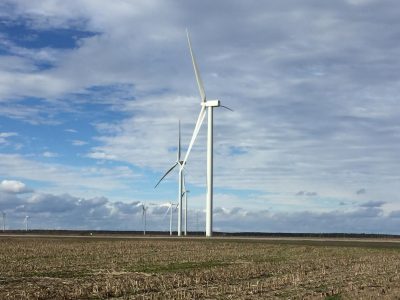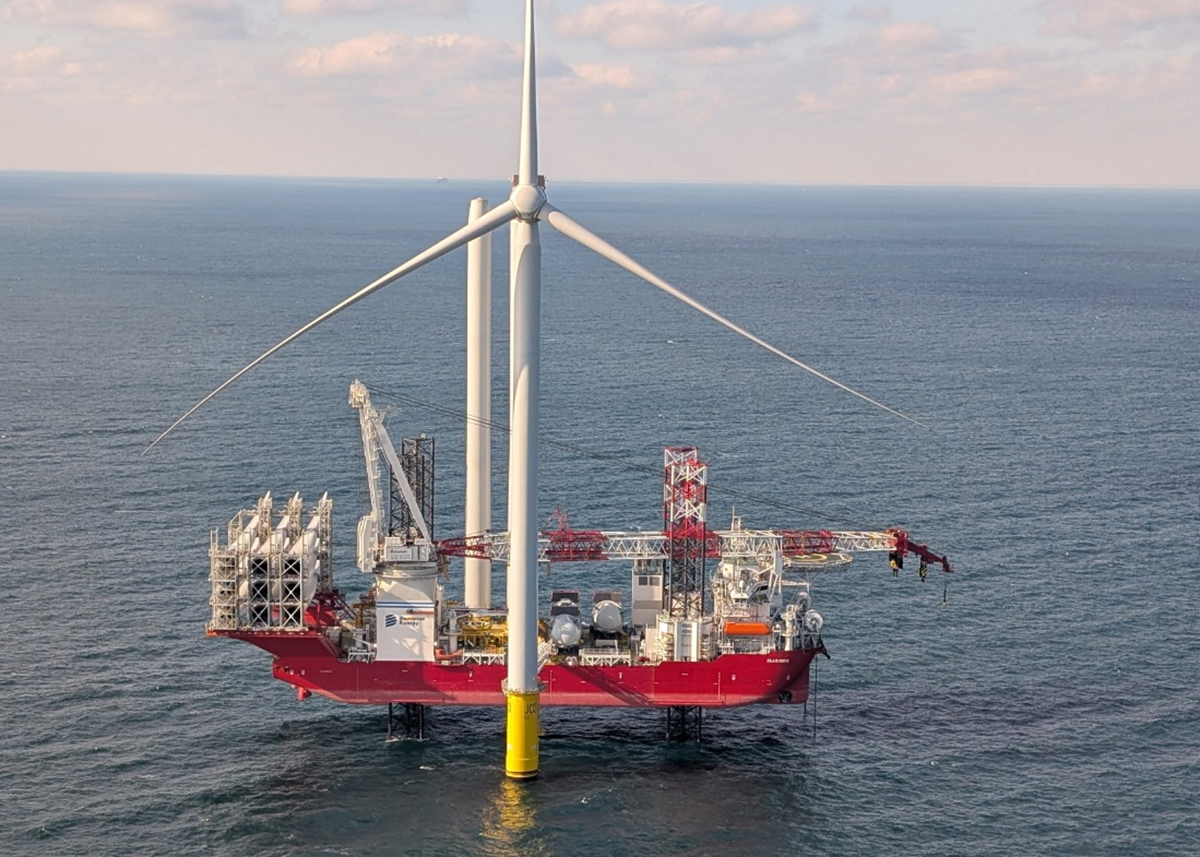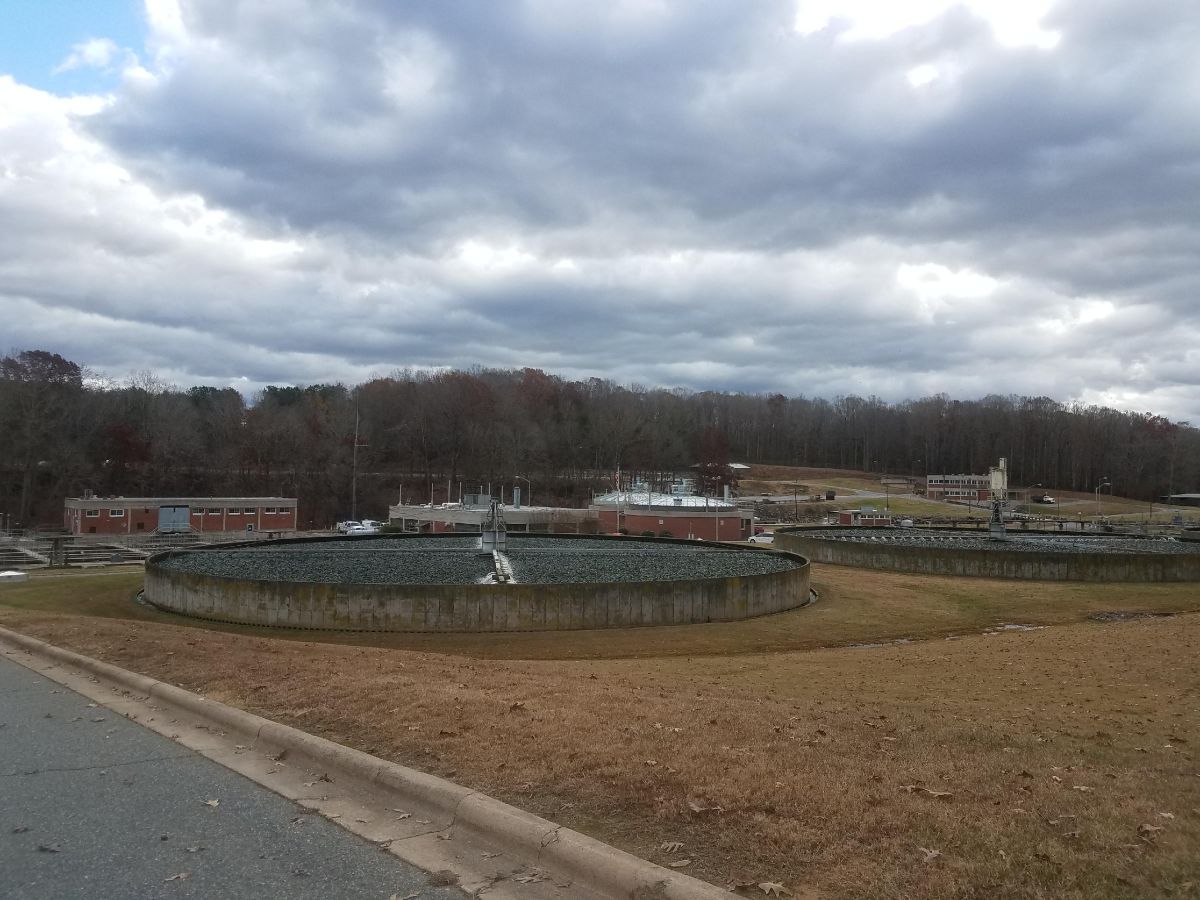RALEIGH – A House committee gave a tentative nod to new changes in proposed wind energy legislation, while both chambers worked through dozens of bills in an attempt to beat an end-of-week deadline.

Crossover week in the North Carolina General Assembly is generally a marathon followed by a sprint. Any non-appropriations bill that hasn’t been passed by one chamber — and thus crossed over to the other side — can’t be taken up again. Still, legislative language has been known to resurface, added into the budget or into bills passed later in the session.
Supporter Spotlight
One example of that this year is an ongoing effort to strike a compromise on wind energy regulations, an increasingly tense debate that has pitted representatives of military base-host communities against the state’s growing wind energy industry.
Last year’s session ended with a hotly contested plan proposed by Sen. Harry Brown, R-Onslow, that would have eliminated large swaths of eastern North Carolina from contention for projects and likely would have stopped a handful of projects in early stages.
Although Brown’s plan did not become law, legislation this year has sought to once again settle the siting issue with a range of bills, including an outright moratorium on new wind projects and a bill clarifying permitting responsibilities that’s supported by the industry.
Early this month, legislation proposed by Rep. Chris Millis, R-Pender, that would have imposed tighter restrictions on wind projects, including setbacks of one mile and a 30-mile exclusion zone around military bases and installations, was voted down by the House Homeland Security, Military and Veterans Affairs Committee.
A proposal for a moratorium on new projects through 2020 sponsored by House Majority Leader John Bell, R-Wayne, stalled last week.
Supporter Spotlight

The only House measure moving forward for now is an evolving piece of legislation sponsored by Reps. John Szoka, R-Cumberland, and Holly Grange, R-New Hanover.
Although it failed to clear the crossover deadline this week, supporters are confident Szoka’s House Bill 574 still has a good chance of becoming law, despite challenges in crafting a deal that suits the industry, local governments and military base communities.
At a hearing on the latest version of the bill held Wednesday, the House Energy and Public Utilities Committee heard organizations in military communities about continued concerns that the growing number of wind projects in eastern North Carolina could put bases at risk during a future round of the military’s Base Realignment and Closure process. The most recent round of base closures was in 2005.
Havelock City Manager Frank Bottorff, a retired Marine pilot and a member of the state’s Military Affairs Commission, said based on his experience flying in the state, the wind projects already in the pipeline will degrade the training mission.

“‘Adverse impact’ is in the eye of the beholder,” Bottorff, a former commanding officer at Cherry Point, said. As a pilot, he said “what we’re doing will degrade training in North Carolina.”
Bill Moore, a resident of Kure Beach and a representative of the Coastal Carolina Accountability Project, warned that local governments could be taken advantage of.
“County commissioners can easily be blinded by the increase in property taxes or local lease money that would come from an industrial wind project,” Moore said.
The committee heard a different take from the state’s largest private landholder.
Alissa Cale, land asset manager with Weyerhaeuser, said the bill strikes a balance between private property rights and the military’s ability to weigh in on wind projects. The company, which owns some of the land at the Amazon wind farm in Pasquotank and Perquimans counties, is looking at the possibility of additional projects on some of its land.
“Commercial forestry and wind turbines are compatible,” she said.
Dave Belote, a retired pilot and Dare County resident who was the first commanding officer of the Department of Defense’s siting clearinghouse, said he believes the existing process is sound.
“I know firsthand how military bases and wind farms can coexist,” he said. “If the impacts of a proposed project cannot be properly mitigated, the project won’t get built.”
While the base communities’ concerns continued to resonate with the committee, it approved the bill in a 19-9 vote.
Szoka said afterward that he believes the bill is close and called it a good compromise.
“We heard from local communities that they wanted more local control in permitting wind,” he said. The bill, he said is an attempt to do that.
“The bill wasn’t asked for by the wind folks, wasn’t asked for by DoD, wasn’t asked for by any military base that I am aware of,” Szoka said. “It was asked for because there was a groundswell from local communities. They wanted more say.”
Szoka said the concerns about the impact on the training mission is not about the bases themselves.
“In my viewpoint, the issue is not military installations,” he said. “The whole issue here is the Dare County Bombing Range.”
He said it was a unique range that’s important to carrier aircraft in Norfolk, Virginia, and he expects the military to do what is needed to protect the range.
‘Regulatory Reform’ Bill Approved
Legislators finished work Wednesday on the largest piece of environmental legislation so far this session, sending the final version of Senate Bill 131, The Regulatory Reform Act of 2016-2017, to the governor.
The bill includes numerous provisions approved in one or both chambers last year that failed to reach final passage.
Specific coastal provisions include an exemption on sediment criteria in beach re-nourishment for cape shoal sands and a mandate that the Coastal Resources Commission adopt new sandbag rules that loosen restrictions, including those on proximity to structures.
The bill also requires the Division of Coastal Management to study erosion rates in areas directly adjacent to existing and newly built terminal groins. The study, which could be used to adjust long-term erosion rates for the areas, is due to the Environmental Review Commission by March 1, 2018.
Another provision in the bill requires DEQ to request that the Army Corps of Engineers allow the state to double the threshold of loss required to trigger stream mitigation, from 150 feet to 300 feet.
Other provisions in the bill exempt certain areas with landscaping materials, including gravel, mulch and sand, from calculations for stormwater management requirements.
Clearing Crossover
Among the bills clearing the crossover deadline this week are two omnibus bills with environmental provisions, one from the Senate and one from the House.
Senate Bill 434, which includes a repeal on the plastic bag ban in Currituck, Dare and Hyde counties and a requirement that Department of Environmental Quality certify certain coastal developments as compliant with stormwater requirements, despite the department’s findings of non-compliance.
The bill would also lift a requirement that DEQ only issue leases within Shellfish Aquaculture Enterprise Areas to North Carolina residents.
Among its provisions, another measure, House Bill 56, makes changes to the state’s leaking underground storage tank program and remediation rules and tightens reporting requirements on wastewater discharges.
This week, the Senate also passed its version of the Coastal Crescent Trail bill, which would add a trail through Johnston, Sampson, Cumberland, Bladen, Pender, and Onslow counties as the coastal plain’s section of the state’s Mountain-to-Sea Trail, a long-distance hiking trail that runs from the Great Smoky Mountains National Park to Jockey’s Ridge State Park on the Outer Banks.







